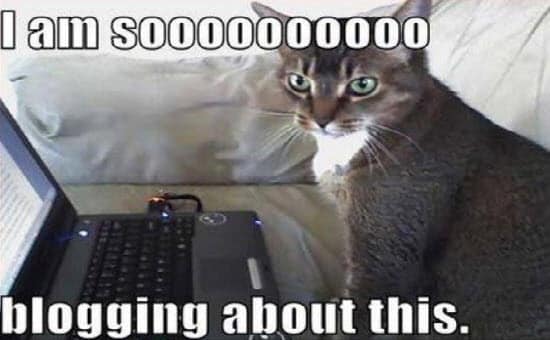(Source: Flickr)
This is the ninth instalment of my conversation with Nigel Lake, CEO of Pottinger, a global corporate advisory firm based in Sydney, Australia. Nigel is the author of The Long Term Starts Tomorrow, a must have book “for any manager, leader or Minister.” The Hon Mike Baird MP, Premier of NSW
Tom: One of my friends used to work at a large management consultancy in Sydney and was involved with providing advice to The Australian on the implementation of its subscription model.
In my view the subscription model is a crazy model because on the Internet the things which are scarce are attention and the ability to connect with people. Content is very cheap and increasingly free.
How can it be a good strategy for large newspapers, which are in the business of content creation and distribution, to be restricting access to that content? Meanwhile Google, LinkedIn and others are producing huge amounts of content and giving it away for free. What are your thoughts on that?

What many of these organisations have done is say, “look, we are a newspaper”, and the world is going digital so we need to place the newspaper online.
So they take the physical newspaper and then they put it into an Internet version which is still the exact same thing as the physical newspaper. All lined up around the masthead of whatever the title is, and it has sections which are the sections that they used to have before.
After about 20 years they realised that if you’re online you can actually have video in a newspaper, which is a very modern phenomenon. Papers like the New York Times still don’t have much in the way of video content which is kind of bizarre because it works really well on a 4G network.
They have just not in any way reinvented themselves for the digital world.
The challenge is that to do that properly and to be able to figure out what you should actually do, you need to understand the media industry and what it is that people actually want to go and read. Secondly, you have to understand what makes a profit and what makes a return on capital. And thirdly, you need to understand what is really going on in the evolution of technology and where will it take us.
This goes back to why we set up Pottinger in the first place. If you have a strategic consulting set of skills but you don’t have financial or transaction skills then you only have part of the equation. And if you’re an investment banker who likes doing deals then you only have part of the equation. So we brought together the whole strategic thinking mindset with very robust financial analysis and over time we have added the big data analytics piece so that we have a much more holistic view of what you need to do.
In the world of media the technology part is incredibly important.
The lack of understanding about what is really going on in technology in some of these large media companies around the world is mind blowing. It’s almost impossible to put into words how little they know.
Tom: I couldn’t agree more.
Nigel Lake: Just on newspapers, the one that is very interesting to watch is The Guardian.
The thing that The Guardian has done which is very interesting, beyond the fact that they don’t have quite as many amazing typos as they used to, is that they are the world’s first global newspaper.
They have the full editorial staff in the UK, they have a pretty decent editorial staff in the U.S., and they now have quite a strong editorial staff in Australia having picked up some of the better journos who got kicked out of other things. They have a model which is free in terms of ability to access the content, and they have still retained a level of focus on the quality of the writing.
This is the other part of the media journey that newspapers have been down, which is they’ve said, we have got to get online, everything is so cheap online, we’ll just make the content as cheaply as possible. And the underlying business is really profitable because people come there and click on all the ads. But the thing is people don’t go to a newspaper website to read the ads. And so, if the content is not what people want they will just go somewhere else. Particularly if they have to pay for it, then they will definitely go somewhere else.
The Guardian has followed a different model which is about saying we’ll try to keep the quality of the journalism up, we’ll provide a much broader view of the world, and it’s not a subscription model at this point in time. Well, it’s a subscription model for things like the crosswords which is kind of interesting.
For me that feels like intuitively a model which is much more likely to be successful. Now I have never worked with The Guardian and I’d love to get under the hood of their profitability and metrics on usage and so forth. But they are an example of a paper which is going the other way, and I’d be interested to see whether it is working for them.
🔴 Like this article?
Sharpen your edge in consulting
